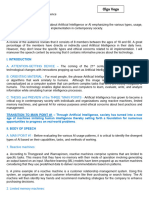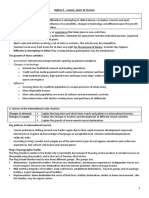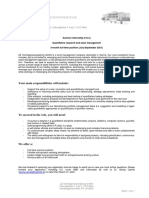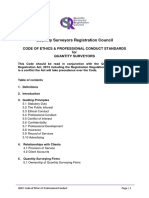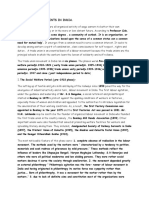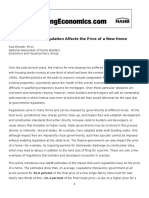0% found this document useful (0 votes)
24 views3 pagesDocument 2
The document discusses the rise of artificial intelligence (AI) in various sectors such as healthcare, business, and entertainment, highlighting its benefits like disease diagnosis and efficiency improvements. It also addresses concerns regarding AI development, including data privacy, job displacement, and biased algorithms, emphasizing the need for ethical guidelines. The text concludes with critical thinking questions about the implications of AI on employment and the importance of regulation.
Uploaded by
fatima gourariCopyright
© © All Rights Reserved
We take content rights seriously. If you suspect this is your content, claim it here.
Available Formats
Download as PDF, TXT or read online on Scribd
0% found this document useful (0 votes)
24 views3 pagesDocument 2
The document discusses the rise of artificial intelligence (AI) in various sectors such as healthcare, business, and entertainment, highlighting its benefits like disease diagnosis and efficiency improvements. It also addresses concerns regarding AI development, including data privacy, job displacement, and biased algorithms, emphasizing the need for ethical guidelines. The text concludes with critical thinking questions about the implications of AI on employment and the importance of regulation.
Uploaded by
fatima gourariCopyright
© © All Rights Reserved
We take content rights seriously. If you suspect this is your content, claim it here.
Available Formats
Download as PDF, TXT or read online on Scribd
/ 3



























